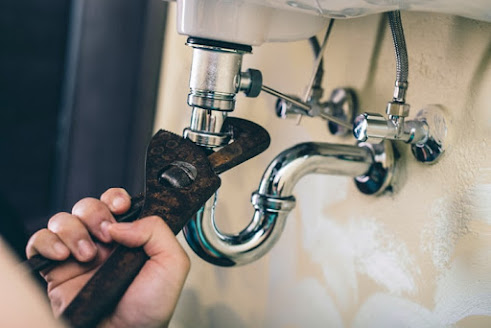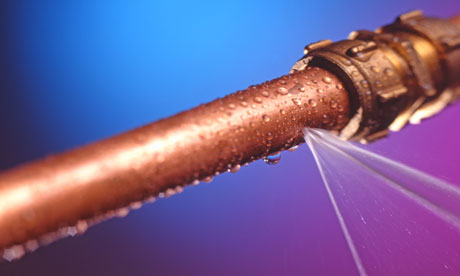The author is making a number of good pointers relating to Why Do My Plumbing Pipes Make A Knocking Noise as a whole in this content in the next paragraphs.

To detect loud plumbing, it is essential to figure out initial whether the unwanted noises happen on the system's inlet side-in various other words, when water is transformed on-or on the drainpipe side. Sounds on the inlet side have actually differed reasons: too much water stress, used shutoff and also tap components, poorly attached pumps or various other appliances, inaccurately put pipe bolts, as well as plumbing runs containing way too many limited bends or other constraints. Noises on the drainpipe side normally stem from bad location or, just like some inlet side noise, a design containing limited bends.
Hissing
Hissing noise that happens when a tap is opened slightly normally signals excessive water pressure. Consult your neighborhood water company if you think this trouble; it will certainly be able to tell you the water pressure in your location and also can mount a pressurereducing valve on the incoming water system pipeline if essential.
Other Inlet Side Noises
Creaking, squeaking, scratching, snapping, and also tapping generally are triggered by the development or tightening of pipelines, generally copper ones providing hot water. The noises take place as the pipelines slide versus loosened fasteners or strike close-by home framing. You can commonly identify the place of the problem if the pipes are revealed; simply comply with the sound when the pipes are making sounds. Probably you will discover a loosened pipe wall mount or an area where pipelines lie so close to flooring joists or other mounting pieces that they clatter versus them. Connecting foam pipe insulation around the pipelines at the point of get in touch with should treat the problem. Make certain straps and also hangers are safe and secure and give sufficient assistance. Where possible, pipe bolts should be connected to huge architectural elements such as foundation wall surfaces as opposed to to framing; doing so reduces the transmission of resonances from plumbing to surface areas that can amplify as well as move them. If affixing fasteners to framing is unavoidable, cover pipelines with insulation or other resistant product where they get in touch with bolts, and also sandwich completions of brand-new bolts in between rubber washing machines when mounting them.
Remedying plumbing runs that suffer from flow-restricting limited or countless bends is a last resort that should be undertaken just after consulting an experienced plumbing contractor. However, this scenario is relatively common in older residences that may not have been constructed with indoor plumbing or that have actually seen a number of remodels, especially by novices.
Chattering or Shrilling
Intense chattering or shrilling that happens when a shutoff or faucet is switched on, which typically goes away when the fitting is opened completely, signals loosened or defective interior components. The service is to change the shutoff or tap with a new one.
Pumps as well as devices such as cleaning machines as well as dishwashing machines can move electric motor sound to pipelines if they are improperly connected. Link such products to plumbing with plastic or rubber hoses-never stiff pipe-to isolate them.
Drain Sound
On the drainpipe side of plumbing, the chief goals are to get rid of surface areas that can be struck by dropping or rushing water as well as to protect pipes to consist of inevitable sounds.
In brand-new construction, tubs, shower stalls, bathrooms, as well as wallmounted sinks and basins need to be set on or versus durable underlayments to decrease the transmission of sound via them. Water-saving bathrooms and taps are much less noisy than standard designs; install them as opposed to older types even if codes in your area still allow using older components.
Drainpipes that do not run up and down to the basement or that branch right into horizontal pipeline runs sustained at floor joists or various other framing existing particularly frustrating noise issues. Such pipes are big sufficient to radiate significant resonance; they likewise bring substantial amounts of water, which makes the scenario even worse. In new construction, specify cast-iron dirt pipelines (the huge pipelines that drain toilets) if you can afford them. Their massiveness consists of a lot of the sound made by water travelling through them. Additionally, stay clear of routing drains in wall surfaces shown bed rooms and also rooms where individuals collect. Walls having drains need to be soundproofed as was defined previously, utilizing double panels of sound-insulating fiberboard and wallboard. Pipelines themselves can be covered with special fiberglass insulation made for the objective; such pipelines have an invulnerable vinyl skin (sometimes having lead). Results are not always acceptable.
Thudding
Thudding sound, commonly accompanied by shuddering pipelines, when a faucet or device valve is switched off is a condition called water hammer. The sound and resonance are caused by the reverberating wave of stress in the water, which all of a sudden has no area to go. In some cases opening up a shutoff that discharges water swiftly right into a section of piping including a constraint, elbow, or tee fitting can generate the exact same problem.
Water hammer can generally be cured by setting up fittings called air chambers or shock absorbers in the plumbing to which the issue shutoffs or taps are attached. These tools permit the shock wave developed by the halted circulation of water to dissipate airborne they have, which (unlike water) is compressible.
Older plumbing systems might have brief vertical sections of capped pipe behind walls on tap competes the exact same function; these can ultimately full of water, minimizing or ruining their efficiency. The treatment is to drain pipes the water supply totally by shutting off the major water system valve as well as opening all faucets. After that open the major supply valve as well as shut the faucets individually, starting with the faucet nearest the shutoff and finishing with the one farthest away.
3 Most Common Reasons for Noisy Water Pipes
Water hammer
When water is running and is then suddenly turned off, the rushing liquid has no place to go and slams against the shut-off valve. The loud, thudding sound that follows is known as a water hammer. Besides being alarming, water hammer can potentially damage joints and connections in the water pipe itself. There are two primary methods of addressing this issue.
Check your air chamber. An air chamber is essentially a vertical pipe located near your faucet, often in the wall cavity that holds the plumbing connected to your sink or tub. The chamber is filled with air that compresses and absorbs the shock of the fast moving water when it suddenly stops. Unfortunately, over time air chambers tend to fill with water and lose their effectiveness. To replenish the air chambers in your house you can do the following. Turn off the water supply to your house at the main supply (or street level). Open your faucets to drain all of the water from your plumbing system. Turn the water back on. The incoming water will flush the air out of the pipes but not out of the vertical air chamber, where the air supply has been restored. Copper pipes
Copper pipes tend to expand as hot water passes through and transfers some of its heat to them. (Copper is both malleable and ductile.) In tight quarters, copper hot-water lines can expand and then noisily rub against your home's hidden structural features — studs, joists, support brackets, etc. — as it contracts.
One possible solution to this problem is to slightly lower the temperature setting on your hot water heater. In all but the most extreme cases, expanding and contracting copper pipes will not spring a leak. Unless you’re remodeling, there's no reason to remove sheetrock and insert foam padding around your copper pipes.
Water pressure that’s too high
If your water pressure is too high, it can also cause noisy water pipes. Worse, high water pressure can damage water-supplied appliances, such as your washing machine and dishwasher.
Most modern homes are equipped with a pressure regulator that's mounted where the water supply enters the house. If your home lacks a regulator, consider having one professionally installed. Finally, remember that most plumbers recommend that water is delivered throughout your home at no lower than 40 and no greater than 80 psi (pounds per square inch).
Whatever the state of your plumbing, one thing is certain — you’re eventually going to encounter repair and replacement issues around your home that require professional help. That’s where American Home Shield can come to your aid.
https://www.ahs.com/home-matters/repair-maintenance/causes-of-noisy-water-pipes/

I am just very fascinated by Why Your Water Pipes Are Noisy and How To Shut Them Up and I'm hoping you enjoyed our entry. Sharing is good. Helping people is fun. Thank you so much for going through it.
Request An Estimate